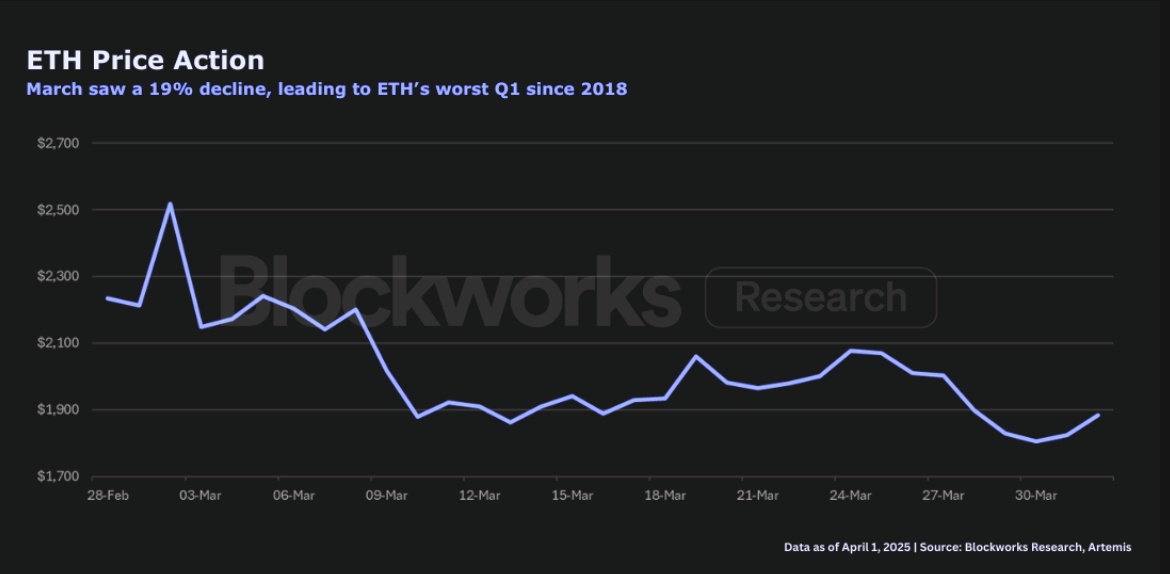Ethereum’s Future at Risk as L2s Extract Value Without Contribution
Ethereum risks becoming a passive layer as L2s extract value without contributing to its security. L2s profit significantly while paying minimal fees to Ethereum, creating an unsustainable economic imbalance. Requiring L2s to stake ETH and share fees could realign economic incentives and strengthen Ethereum’s role.
- Ethereum risks becoming a passive layer as L2s extract value without contributing to its security.
- L2s profit significantly while paying minimal fees to Ethereum, creating an unsustainable economic imbalance.
- Requiring L2s to stake ETH and share fees could realign economic incentives and strengthen Ethereum’s role.
Ethereum is bleeding value as Layer 2 (L2) solutions extract fees, maximal extractable value (MEV), and liquidity without adequately contributing to its security. If this continues, Ethereum may become nothing more than a passive security layer while L2s generate massive profits. This situation raises concerns about Ethereum’s long-term sustainability and economic alignment with rollups.
L2s Profit While Ethereum Gets Left Behind
Currently, L2s pay minimal fees to Ethereum while making substantial revenue. For example, Base generated approximately $2.5 million in fees last month but only paid Ethereum $11,000. Optimism earned $321 for every $1 it contributed to Ethereum. Consequently, L2s enjoy high profitability , while Ethereum sees little benefit from the value they generate.
Additionally, most rollups do not use ETH as gas. Instead, they create their own tokens, further reducing Ethereum’s direct value capture. Although L2s rely on Ethereum’s security, they contribute only a fraction of what they extract. This economic imbalance is unsustainable and demands a solution.
Aligning Ethereum and L2 Economies
To address this issue, L2s must contribute to Ethereum’s economic security. One solution involves requiring L2 sequencers to stake ETH as collateral. This approach ensures that rollups remain financially tied to Ethereum’s success.
Furthermore, a portion of all L2 fees should be redirected to Ethereum stakers. MEV generated on rollups must also be redistributed to Ethereum validators. Besides, if an L2 does not use ETH as gas, it should be required to either stake ETH or allocate a portion of its token supply to an ETH vault. This vault would act as an index of rollup economies, reinforcing Ethereum’s role as the financial foundation .
Ethereum validators should secure rollups, not just the base layer. L2 sequencers must stake ETH, ensuring Ethereum remains integral to rollup operations. Moreover, ETH should be the primary settlement asset for cross-rollup transactions. Native gas tokens can coexist, but Ethereum’s liquidity layer must remain dominant.
DISCLAIMER: The information on this website is provided as general market commentary and does not constitute investment advice. We encourage you to do your own research before investing.
Disclaimer: The content of this article solely reflects the author's opinion and does not represent the platform in any capacity. This article is not intended to serve as a reference for making investment decisions.
You may also like
Honda prepares to send its hydrogen tech to space
Share link:In this post: Honda is working with Sierra Space and Tec-Masters, two space technology companies, to try their high-differential pressure water electrolysis system. Honda aims for hydrogen to help it get all of its cars off carbon by 2040. Honda says it will work with NASA to get the equipment to the ISS on Sierra Space’s Dream Chaser space plane.
ETH just had lowest quarterly return since Q2 2022: Blockworks Research
The network is at a “pivotal juncture,” Blockworks Research’s Marc-Thomas Arjoon said

Riot Platforms Hits Post-Halving Bitcoin Production High as It Expands AI Capacity
Solana Price Pattern Points to a 65% Surge as Key Metric Beats Ethereum by Far
